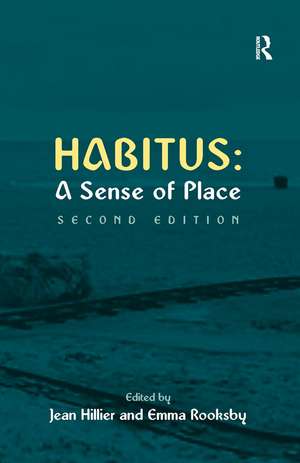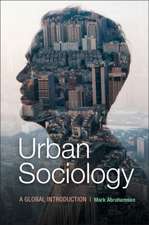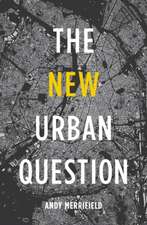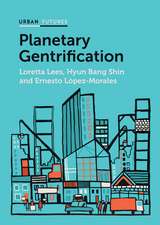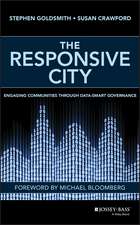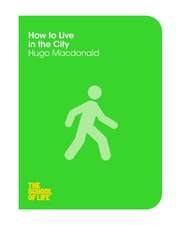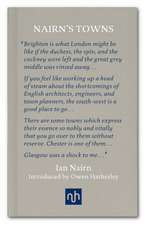Habitus: A Sense of Place: Urban and Regional Planning and Development Series
Autor Emma Rooksby Editat de Jean Hillieren Limba Engleză Hardback – 18 sep 2018
| Toate formatele și edițiile | Preț | Express |
|---|---|---|
| Paperback (1) | 456.38 lei 6-8 săpt. | |
| Taylor & Francis – 28 iun 2005 | 456.38 lei 6-8 săpt. | |
| Hardback (1) | 773.68 lei 6-8 săpt. | |
| Taylor & Francis – 18 sep 2018 | 773.68 lei 6-8 săpt. |
Preț: 773.68 lei
Preț vechi: 1032.98 lei
-25% Nou
Puncte Express: 1161
Preț estimativ în valută:
148.04€ • 154.58$ • 122.25£
148.04€ • 154.58$ • 122.25£
Carte tipărită la comandă
Livrare economică 15-29 aprilie
Preluare comenzi: 021 569.72.76
Specificații
ISBN-13: 9781138380615
ISBN-10: 113838061X
Pagini: 444
Dimensiuni: 156 x 234 mm
Greutate: 0.98 kg
Ediția:2
Editura: Taylor & Francis
Colecția Routledge
Seria Urban and Regional Planning and Development Series
Locul publicării:Oxford, United Kingdom
ISBN-10: 113838061X
Pagini: 444
Dimensiuni: 156 x 234 mm
Greutate: 0.98 kg
Ediția:2
Editura: Taylor & Francis
Colecția Routledge
Seria Urban and Regional Planning and Development Series
Locul publicării:Oxford, United Kingdom
Cuprins
Contents: Introduction to Second Edition: Committed scholarship, Jean Hillier and Emma Rooksby; Introduction to First Edition, Jean Hillier and Emma Rooksby; Habitus, Pierre Bourdieu. Politics of Space and Place: Democracy and the question of power, Ernesto Laclau; Politics: territorial or non-territorial?, Paul Hirst; Toleration and the art of international governance: how is it possible to 'Live Together' in a fragmenting international system?, Grahame F. Thompson; Which kind of public space for a democratic habitus?, Chantal Mouffe; Metropolitan liberalism and colonial autocracy, Barry Hindess; Governmentality and regional economic strategies, Joe Painter. Process of Place-Making: Mind the gap, Jean Hillier; Place, identity and governance: transforming discourses and practices, Patsy Healey; Difference, fear and habitus: a political economy of urban fears, Leonie Sandercock; Spectral cities: where the repressed returns and other short stories, Steve Pile; Crime and the design of the built environment: Anglo-American comparisons of policy and practice, Ted Kitchen and Richard H Schneider; The silent complicity of architecture, Kim Dovey; Belonging: towards a theory of identification with space, Neil Leach. Decolonising Spatial Habitus: Placemaking as project? Habitus and migration in transnational cities, John Friedmann; Enduring landscape, changing habitus: the Sa'dan Toraja of Sulawesi, Indonesia, Roxana Waterson; The endurance of Aboriginal women in Australia, Fay Gale; Belonging, naming, and decolonisation, Val Plumwood. Conclusions, Jean Hillier and Emma Rooksby; Index.
Notă biografică
Professor Jean Hillier is Associate Dean, Sustainability and Urban Planning at RMIT University, Australia, Emma Rooksby is based in the Centre for Applied Philosophy and Public Ethics (an ARC-funded special research centre) at Charles Sturt University, Australia. She is also Visiting Fellow at The University of Melbourne and the Australian National University, Australia.
Recenzii
From the first edition: ’The concept of Habitus stands at the centre of the work of Pierre Bourdieu. It is one of the most important analytic tools in contemporary sociology, yet one of the most frequently misunderstood. This volume offers a welcome occasion for clarification, deeper examination, and new analyses.’ Craig Calhoun, University of New York, USA ’Gathering together the contributions of a group of leading scholars, this book represents an innovative and important application of Bourdieusian theory, showing how space is intertwined with power. The collection also breaks new ground by enquiring closely how durable the Habitus is. In a fresh essay, especially written for this volume, Bourdieu synthesises his earlier research on the historical role of rootless intellectuals, or others whose "misfit Habitus" is productive of fruitful heresies. The volume as a whole thus valuably illuminates the nature of oppositional thought and action, pinpointing especially groups such as migrants, dissident planners or ethnic minorities as bearers of social transformations.’ Bridget Fowler, University of Glasgow, UK ’...it is a significant contribution to those interested in social and political aspects of everyday life in general, and Bourdieu's work in particular.’ Journal of Rural Cooperation ’...this is a rich collection of papers emerging from a diverse range of disciplines, written by social and political theorists, theorists of urban planning and architecture, geographers and philosophers...an eclectic mixture of political and urban planning theory.’ Local Government Studies ’The collection is a valuable one, as much for the individual empirical applications and theoretical extensions as for the inspiration derived from the concept of habitus itself.’ European Journal of Communication
Descriere
Habitus implies that a web of complex processes links the physical, the social and the mental. This second edition contains updated chapter material, together with an entirely new introduction and revised conclusions which recognize the importance of Bourdieu's work.
